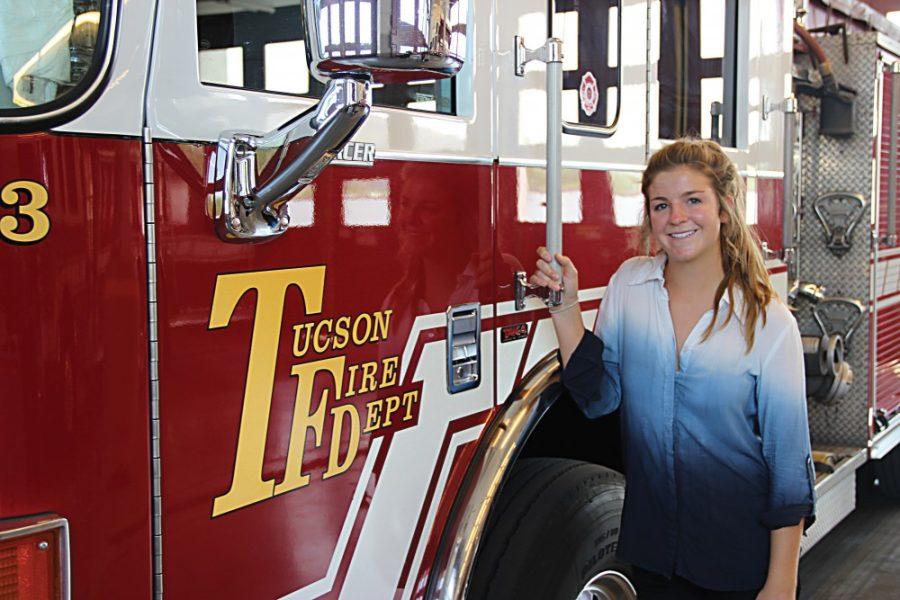In collaboration with the Tucson Fire Department, the UA psychiatry department is working to develop a program to help firefighters cope with potentially traumatic calls.
The program, funded by a UA Community Connections Grant, seeks to use the firefighters’ peers to help them deal with particularly stressful situations such as the death of a child, or a gruesome accident.
The program will implement measures intended to lessen the first responders’ likelihood of developing post-traumatic stress disorder, or PTSD.
“The idea behind this is that we want to catch things before they get worse,” said John Gulotta, health and safety captain for TFD. “We want to handle it right away and to make sure that we continue to follow up with it… so that we don’t have this baggage that continues to weigh on us.”
The program would utilize a Peer Operational Support Team consisting of specially trained firefighters who would meet their colleagues at the station as they returned from a difficult call, offering resources and support without forcing them to immediately speak about the stressful situation they encountered.
The system currently used, Critical Incident Stress Management, has the potential to cause more harm for the firefighters than good, according to Patricia Haynes, an assistant professor in the department of psychiatry who is leading up the UA side of the program.
“[In the current system] they go to these people who have gone through these stressful events and they say ‘tell me about what happened. Are you okay? Watch out for these symptoms,’ and that’s it,” Haynes said. “The research has shown that doing that is not particularly helpful to people.”
The new system will give the affected person more control in how they deal with a “critical incident,” in that they will not be forced to speak about the incident immediately following it, which is a facet of CISM, Haynes said.
Instead, the POST members will cater their initial treatment to the firefighter’s immediate needs, whether it’s providing a glass of water or moral support. After 30 days, a more formal evaluation will take place.
“Our system is designed [for the POST members] to go out and say ‘hey, if you need anything, let us know,” Haynes said. “And then, 30 days later [the POST members] go out and say ‘okay, now how are you really doing?’”
This type of approach is useful in predicting and managing PTSD, the effects of which might not be apparent immediately following the incident, said Kate Medici, a psychology senior who is assisting Haynes with the development of the program.
PTSD can affect people in a variety of ways, she said, including problems sleeping, irritability and depression, as well as increased reaction to certain stimuli and flashbacks.
“It can be delayed-onset, or the symptoms could happen right away. It just depends on the person,” Medici said.
Currently, the program is being implemented and tested for feasibility as part of its initial development phase.
At the outset, the POST will be made up of two firefighters per shift, but Gulotta said he hopes to expand that number to five to ten per shift as the program progresses.
Although only a small percentage of firefighters suffer from PTSD, Gulotta cited the relatively high suicide rate among first responders as part of the impetus for the program.
“It’s tough to explain the emotional component of [firefighting] to folks that haven’t been on calls,” he said, noting that most firefighters are not dwelling on the negative aspects of their job. “If we can address a problem early, then that firefighter is going to be more effective on the call, and the call after that…That’s why it’s really important.”









